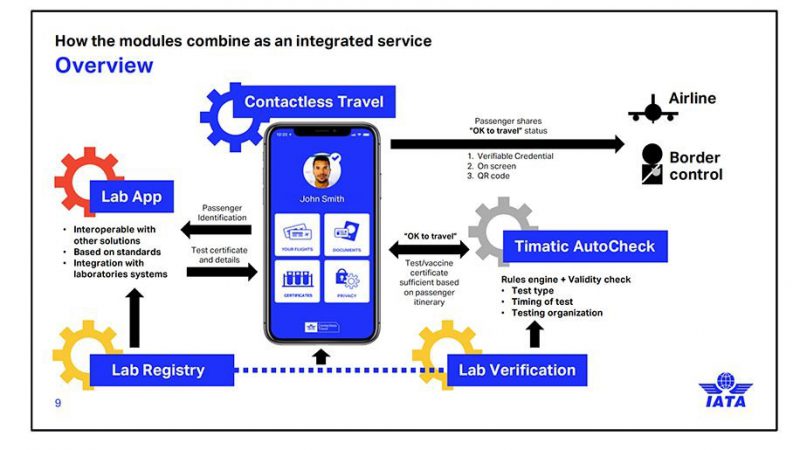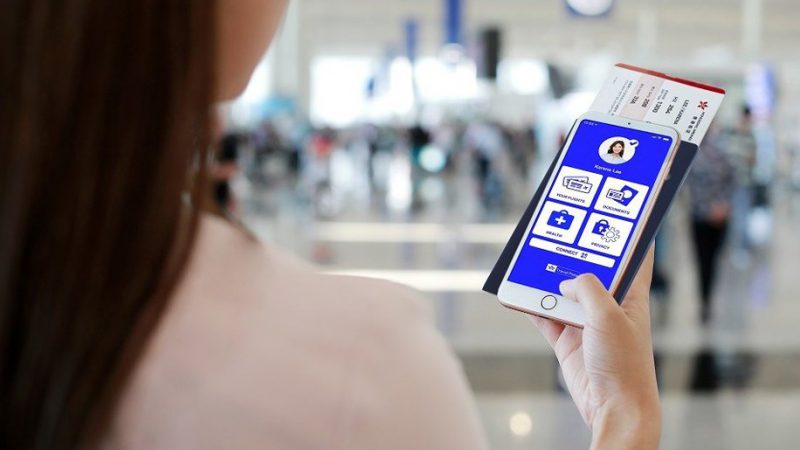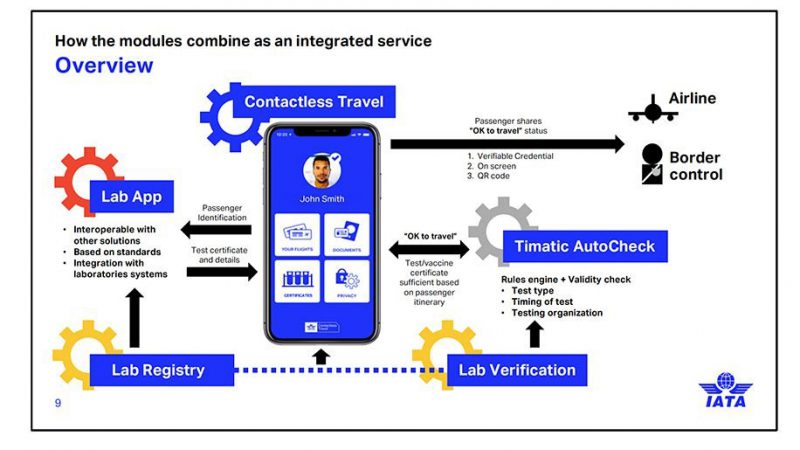The Great Late Travel Pass Debate
As vaccinations ramp up, so do questions about official travel pass distributions
March 30, 2021


Is it safe to travel yet? On the surface, the news is good. More than 15 percent of the US population has been vaccinated with no end in sight. Pods are forming for family and friend get-togethers again and people are finally able, or feel they are finally able to make plans. But maybe not quite yet.
With several states irresponsibly erasing mask-wearing mandates and new Covid strains reeling through local populations where partying is the rule and masks have come off, average daily cases in this country are hovering on the high side – tallying nearly 60,000 new cases of COVID-19 per day. CDC officials are begging people to stay home, even citing “impending doom” as more than a million travelers per day have been counted for the last 18 days snaking through U.S. airport screenings.
So what does this mean for those who have been dutifully vaccinated and are ready to get on the road? According to the CDC and epidemiologists it’s still a big wait and see gambit. Studies are underway to understand whether vaccinated people can still become infected and transmit the virus, whether they are asymptomatic or not. Cases of vaccinated individuals coming down with COVID-19 are not uncommon and little is yet known about strain variations and their effects on all groupings.
 Still, travel must go on, especially for essential functions, and into that requirement comes the travel pass.
Still, travel must go on, especially for essential functions, and into that requirement comes the travel pass.
The concept of having one official travel pass is not new but it is changing almost daily. Simply put, every traveler should have a personal health card to submit that shows,electronically or on paper, whether they have been vaccinated, when and where that occurred, and/or the status, provider and date of their latest COVID-19 test. Currently, there are several variations of this card or app in the works and, with them, concerns about privacy and potential breaches.
Contenders for creating what will the THE Vaccine Passport include CommonPass as a project in process through the World Economic Forum and The Commons Project Foundation. Clear is also afoot as a service that employs a biometrics approach for members to verify their identity and vaccination/health status at airport security. The European Union recently floated a digital “Green Certificate” as a health ID for safe and free movement of citizens within the EU. IBM also is working on a “digital health pass” that would serve as a catch-all health ID for any activity, from travel to concerts, to show COVID-19 testing or vaccination status. And then several airlines are getting into the activity offering clearances of their own. For instance, United Airlines plans to start allowing passengers to upload their vaccination records beginning in early April.
The Travel Pass
The strongest of the travel passport purveyors so far, however, is the International Air Transport Association (IATA), an international airline trade organization representing some 290 airlines in 120 countries and carrying 82 percent of the world’s air traffic. The association has been testing its concept called the Travel Pass with such airlines as Singapore Airlines, Etihad, Emirates and Virgin Atlantic through the proprietary app that hosts both verified COVID-19 test results and vaccine information. A flier may log in to the Travel Pass app using a FaceID permission on their smartphone, then take a selfie to authorize access. At that point they will be able to scan their passport using the camera on the phone and then add their itinerary, vaccination certificate and COVID-19 test result.
“The successful implementation of the IATA Travel Pass in this trial with Singapore Airlines passengers demonstrates that technology can securely, conveniently and efficiently help travelers and governments to manage travel health credentials. The significance of this to re-starting international aviation cannot be overstated,” said Alexandre de Juniac, IATA’s Director General and CEO in a statement this month.
Ultimately, the Travel Pass system would be integrated into an airline’s own app and stored only on the subscriber’s phone. However, there is much debate about how to enforce cohesion and standards in how various vaccine passport concepts are launched and operated.
“It’s the governments that need to come out with a standard for digital vaccine certificates and then we need to make sure that works with the IATA Travel Pass and with other apps out there. Ours is specifically focused on aviation but for it to work there will obviously need to be interoperability between different standards,” Katherine Kaczynska, assistant director of corporate communications at IATA, told a television network news reporter.
In January, President Joe Biden issued an executive order asking government agencies to “assess the feasibility of linking COVID-19 vaccinations to International Certificates of Vaccination or Prophylaxis,” and with that the capabilities of creating digital presentations. A senior adviser on Biden’s COVID-19 task force, Andy Slavitt, noted the administration is promoting a series of guiding principles about how vaccine passports should be managed but doesn’t believe the data should be held by the government.
Politics of The Travel Pass
Finally, questions remain not only around the privacy and policing of an international travel pass, but also the inequity issues that come through a system that says “you can travel…. and you can’t” in a world where vaccination serums are not equally available to everyone.
The World Health Organization maintains a position that “national authorities and conveyance operators should not introduce requirements of proof of COVID-19 vaccination for international travel as a condition for departure or entry …” adding that “preferential vaccination of travellers could result in inadequate supplies of vaccines for priority populations considered at high risk of severe COVID-19 disease.”




